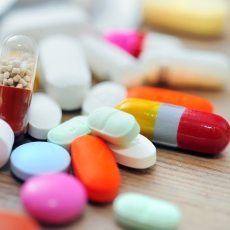
Medicines can treat diseases and improve your health. If you are like most people, you need to take medicine at some point in your life. You may need to take medicine every day, or you may only need to take medicine once in a while. Either way, you want to make sure that your medicines are safe, and that they will help you get better. In the United States, the Food and Drug Administration is in charge of ensuring that your prescription and over-the-counter medicines are safe and effective.
There are always risks to taking medicines. It is important to think about these risks before you take a medicine. Even safe medicines can cause unwanted side effects or interactions with food, alcohol, or other medicines you may be taking. Some medicines may not be safe during pregnancy. To reduce the risk of reactions and make sure that you get better, it is important for you to take your medicines correctly. You should also be careful when giving medicines to children, since they can be more vulnerable to the effects of medicines.
- Medicines (National Library of Medicine)... better. In the United States, the Food and Drug Administration is in charge of ensuring that your ...
- Prescription Drug Misuse (National Library of Medicine)... what the doctor prescribed, it is called prescription drug misuse. It could be: Taking a medicine that ... purpose, such as getting high Misusing some prescription drugs can lead to addiction. These include opioids, sedatives, ...
- Drug Use and Addiction (National Library of Medicine)What are drugs? Drugs are chemical substances that can change how your body and mind work. They include prescription medicines, over-the-counter medicines, alcohol, tobacco, and illegal drugs. What is drug use? Drug use, or misuse, ...
- Drug Reactions (National Library of Medicine)... medicines can also cause unwanted reactions, such as drug interactions, side effects, and allergies. What is a drug interaction? A drug interaction is a change in ...
- Drugs and Young People (National Library of Medicine)What is drug use? Drug use, or misuse, includes: Using illegal substances, such as Anabolic steroids Club drugs Cocaine Heroin Inhalants Marijuana Methamphetamines Misusing prescription ...
- Club Drugs (National Library of Medicine)What are club drugs? Club drugs are group of psychoactive drugs. They act on the central nervous system and can cause changes in mood, awareness, and behavior. ...
- Over-the-Counter Medicines (National Library of Medicine)Over-the-counter (OTC) medicines are drugs you can buy without a prescription. Some OTC medicines relieve aches, pains, and itches. Some prevent or cure diseases, like tooth decay ...
- Blood Thinners (National Library of Medicine)What are blood thinners? Blood thinners are medicines that prevent blood clots from forming. They do not break up clots that you already have. But they ...
- Drug Safety (National Library of Medicine)Before any drug can be sold in the United States, it must be approved by the U.S. Food and Drug Administration (FDA). This is true whether it's a prescription or an over-the-counter drug. The FDA evaluates both the effectiveness and safety ...
- Anabolic Steroids (National Library of Medicine)... treating anabolic steroid addiction. NIH: National Institute on Drug Abuse



